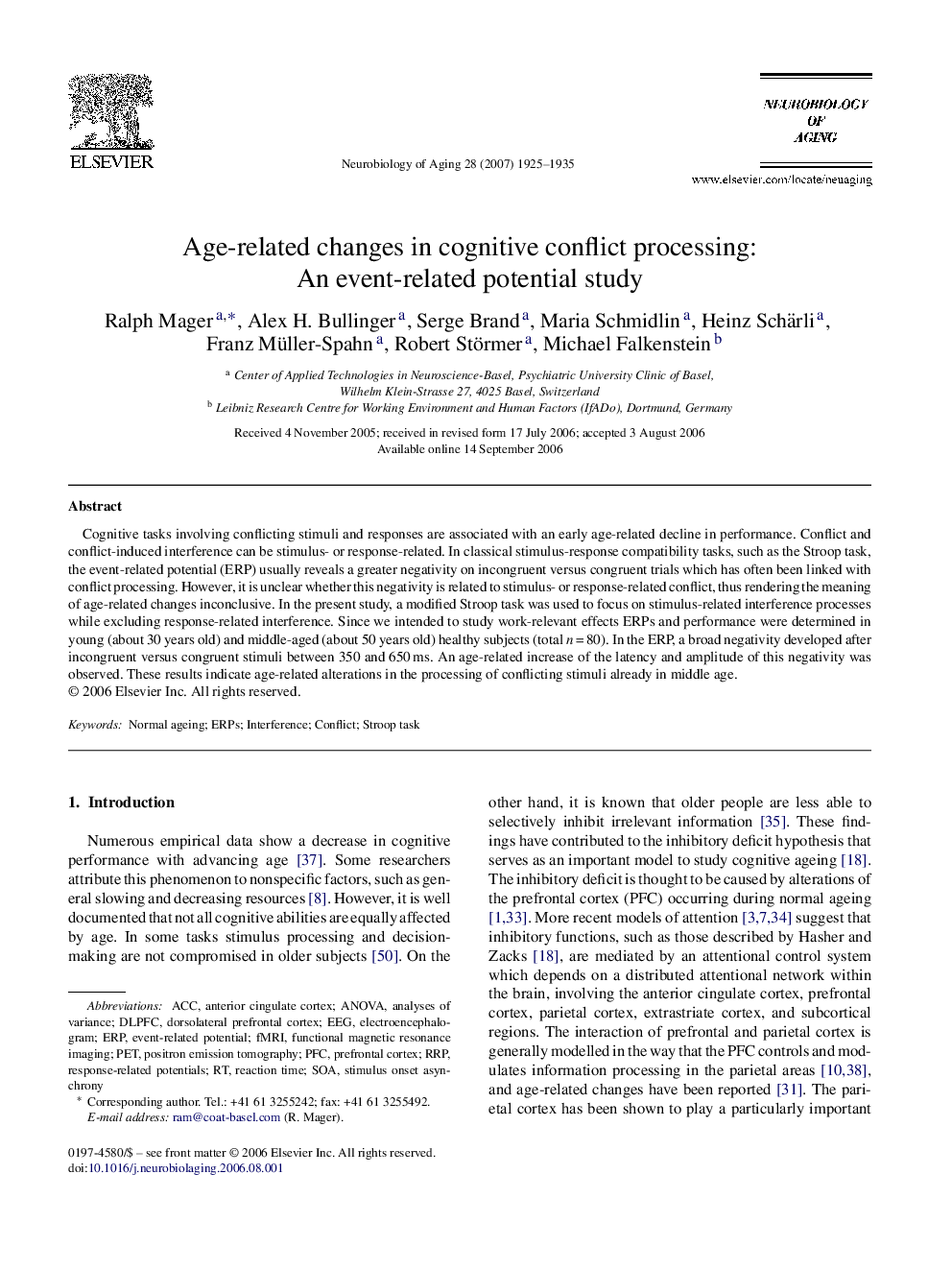| Article ID | Journal | Published Year | Pages | File Type |
|---|---|---|---|---|
| 331350 | Neurobiology of Aging | 2007 | 11 Pages |
Cognitive tasks involving conflicting stimuli and responses are associated with an early age-related decline in performance. Conflict and conflict-induced interference can be stimulus- or response-related. In classical stimulus-response compatibility tasks, such as the Stroop task, the event-related potential (ERP) usually reveals a greater negativity on incongruent versus congruent trials which has often been linked with conflict processing. However, it is unclear whether this negativity is related to stimulus- or response-related conflict, thus rendering the meaning of age-related changes inconclusive. In the present study, a modified Stroop task was used to focus on stimulus-related interference processes while excluding response-related interference. Since we intended to study work-relevant effects ERPs and performance were determined in young (about 30 years old) and middle-aged (about 50 years old) healthy subjects (total n = 80). In the ERP, a broad negativity developed after incongruent versus congruent stimuli between 350 and 650 ms. An age-related increase of the latency and amplitude of this negativity was observed. These results indicate age-related alterations in the processing of conflicting stimuli already in middle age.
